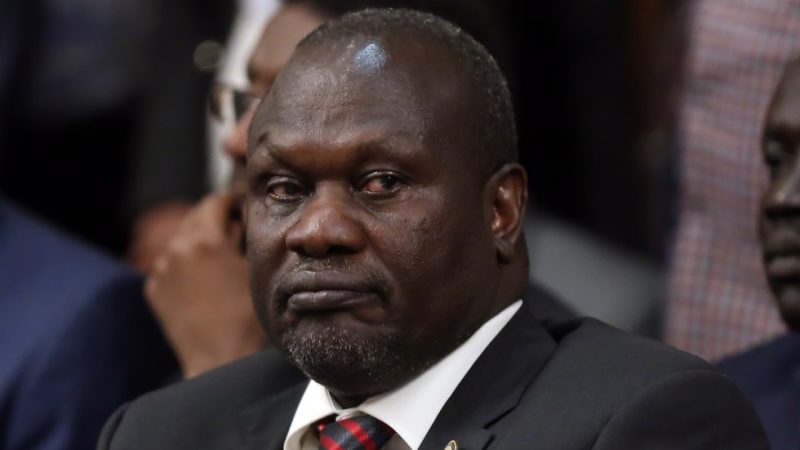
South Sudan, Africa’s youngest nation, is once again teetering on the edge of chaos. Its first vice president, Riek Machar, has been charged with murder, treason, and crimes against humanity. The charges stem from alleged involvement in attacks by ethnic militia groups on national forces earlier this year. The announcement came swiftly from the Justice Minister, Joseph Geng, shortly before President Salva Kiir issued a decree suspending Machar from his position. Petroleum Minister Puot Kang Chol faced similar charges and suspension.
This dramatic escalation of tensions follows clashes in the volatile Upper Nile state, where a UN helicopter was attacked and several government soldiers were killed in March. The South Sudan People’s Defense Forces are currently engaged in conflict with the White Army militia, predominantly composed of fighters from Machar’s Nuer ethnic group. Geng asserts that evidence points to Machar’s command and influence over the White Army’s actions. Machar himself is currently under house arrest.
International concern is mounting. The UN and numerous governments have urged Machar’s release, fearing his continued detention could reignite the devastating civil war that ravaged the country from 2013 to 2018. Western nations, including the US and UK, have advised their citizens to leave South Sudan due to the escalating violence. Russia, meanwhile, has called for a peaceful resolution, urging both sides to recommit to the 2018 peace agreement and exercise political wisdom to prevent further escalation.
The 2018 agreement, a power-sharing deal between Kiir and Machar, now hangs precariously in the balance. Machar’s opposition party, the SPLM-IO, has warned that his arrest effectively voids the agreement. Deputy chairperson of the party’s Foreign Relations Committee, Reath Muoch Tang, stated that the government’s actions are a deliberate attempt to undermine the peace deal, sideline Machar, and consolidate authoritarian control. This latest development casts a long shadow over South Sudan’s fragile peace and raises serious questions about the future stability of the nation. The international community will undoubtedly be watching closely as events unfold.










